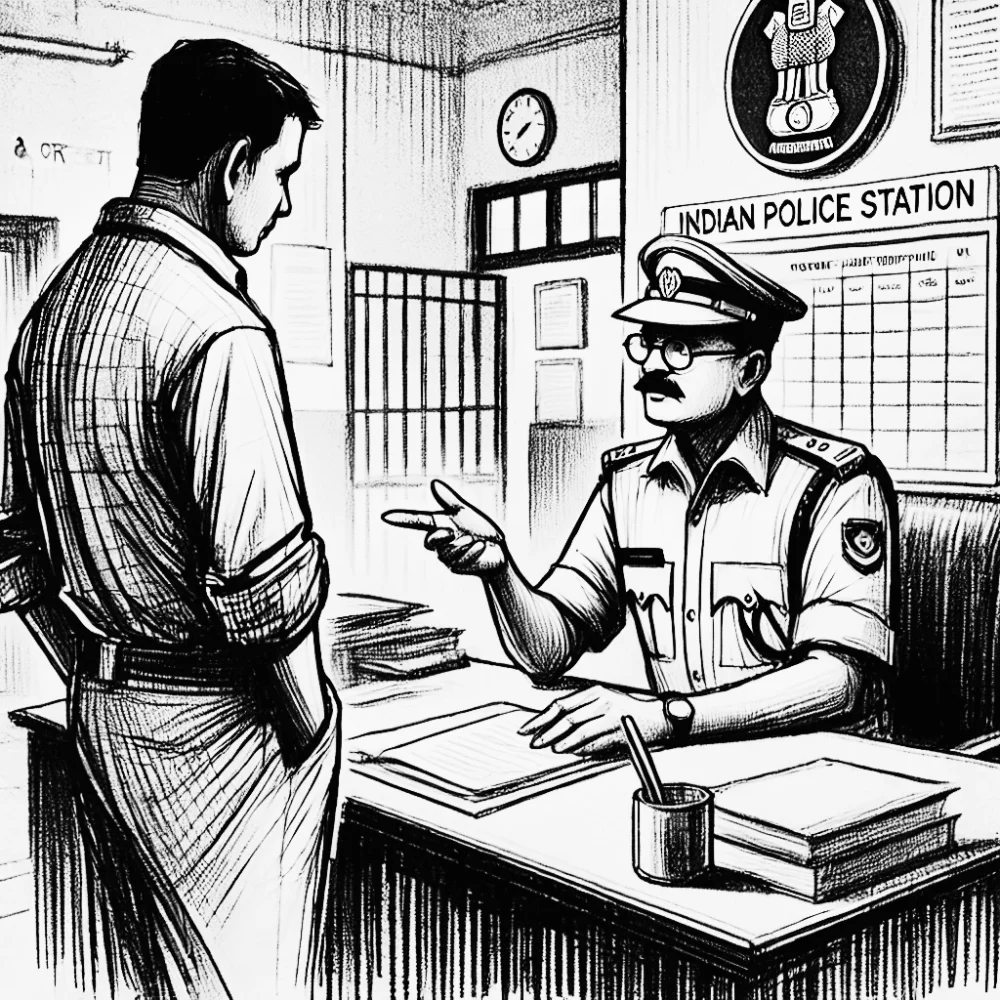Police Station Visit With Client
Recording of Statements in Police Stations Under BNS & BNSS
Overview
This article outlines the process for recording statements in police stations under the Bharatiya Nyaya Sanhita (BNS) and Bharatiya Nagarik Suraksha Sanhita (BNSS). It explains the role of police officers in collecting statements from witnesses, suspects, or any individuals involved in an investigation, the legal framework governing these procedures, and the evidentiary value of the statements. While these statements play a crucial role in guiding investigations and framing charges, they are generally not admitted as direct evidence in court unless specific exceptions apply.
Procedure for Recording Statements in Police Stations
FIR Lodging and Information Collection
FIR Lodging: Before any investigation of a cognizable offense begins, a First Information Report (FIR) must be lodged, in accordance with Section 154 of the BNS. An individual may report the offense orally or in writing. If the information is provided orally, the police are required to reduce it to writing, read it back for confirmation, and verify its accuracy.
Cognizable Offenses: Allow for immediate arrest and investigation without a warrant.
Non-Cognizable Offenses: The police record the information, but any arrest requires a Magistrate’s order as per Section 155 of the BNS.
Statement Recording Process
Recording the Statement: Under Section 161 of the BNS, police officers must examine witnesses and record their statements during the investigation. These statements—whether given by the accused or witnesses—must be recorded in writing. If a statement is given orally, it must be transcribed verbatim in direct speech. The individual giving the statement is required to read it back to confirm its accuracy and sign it.
Key Provisions:
- Direct Speech Requirement: Statements must be recorded in the words with which they are spoken and not paraphrased or summarized loosely.
- Summary in Case Diary: A summary of the recorded statements is to be maintained in the case diary as mandated by Section 161(3) of the BNS.
- Language and Access: If a statement is recorded in a vernacular language, the accused is to be provided with a copy to ensure transparency and facilitate their right to adequate representation. Judicial precedents—such as those in Muniswamy v. State and Dalla v. State of Rajasthan—support this provision.
Limitations and Use of Recorded Statements
Inadmissibility as Evidence: Although these recorded statements are essential for the investigation and serve as a basis for framing charges, they are not considered substantive evidence in court. Under Section 161 of the BNS, they cannot be directly used by the prosecution unless an exception applies.
Evidentiary Considerations:
- Under Section 27 of the Indian Evidence Act, certain information provided by the accused may be admitted as evidence.
- Section 32 of the Indian Evidence Act permits the use of statements made by a deceased person under specific circumstances.
- If a statement is not recorded in strict compliance with Section 161, its evidentiary value may be challenged and, in some instances, disregarded if it prejudices the accused’s right to a fair trial.
Special Cases:
For serious offenses, such as rape, the statement must be recorded by a Magistrate, and—as per the relevant amendments—the investigation may require that a woman officer conduct the recording.
Role in the Investigation Process
The recorded statements, even though limited in their direct use as evidence, play a crucial role in directing the investigation:
- They help the police in framing the charges.
- They guide subsequent investigative steps such as arrests, supplementary inquiries, or forensic examinations.
- They allow the investigating authorities to build a factual matrix of the case which the court may later consider during trial, albeit indirectly.
Limitations in Recording and Usage
Written Format Requirement: The statement of a prosecution witness must be recorded in writing, and it must be properly proven in accordance with the procedural laws under BNS and BNSS.
How Advocate Can Help You:
- Trustworthy & Confidential: We prioritize the privacy and security of your case details under the BNSS and protect your legal interests at all stages.
- Expert Advice: Our qualified legal team ensures you receive expert guidance in understanding your rights and options under BNS and BNSS laws.
- Zero Stress: We handle all the legal procedures for you, making your legal journey stress-free and manageable.
- Top-Quality Lawyers: Connect with the best legal experts skilled in BNS and BNSS to resolve your case effectively.


Reviews
There are no reviews yet.